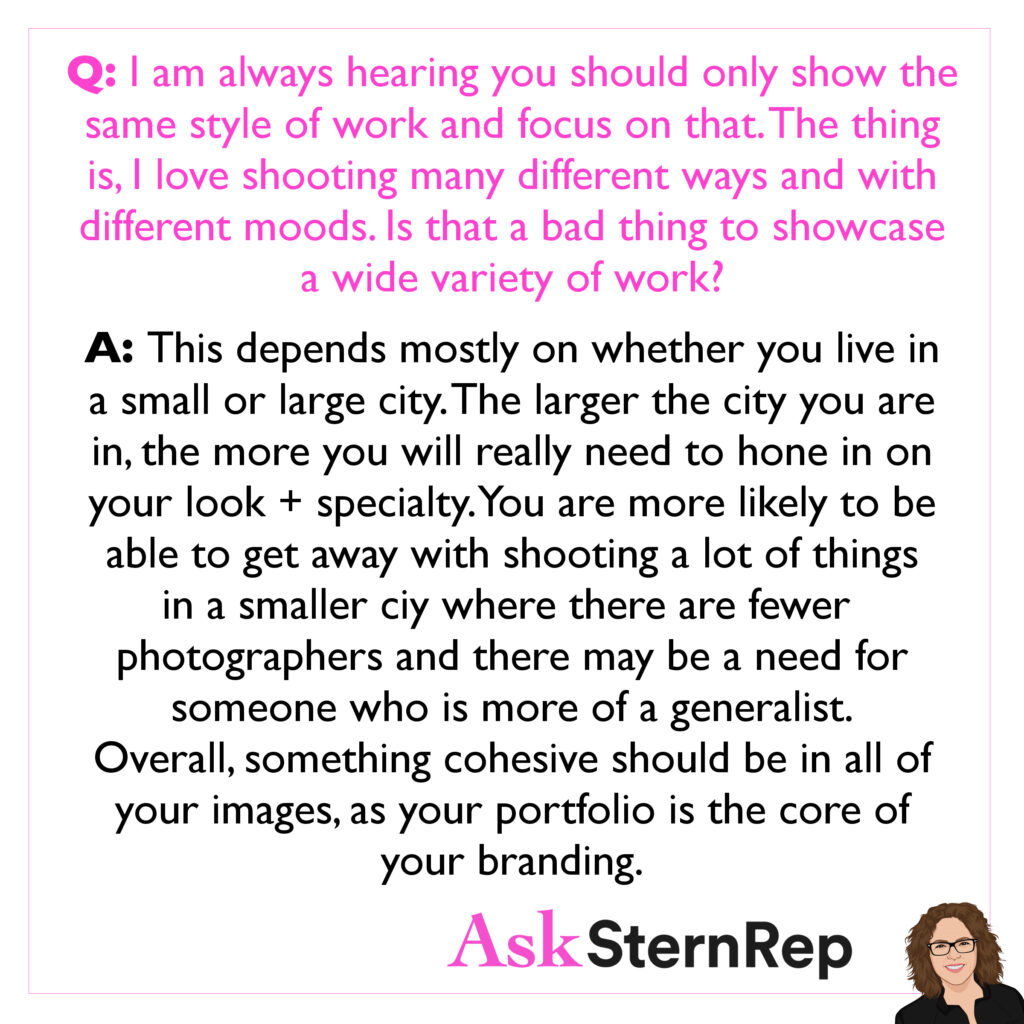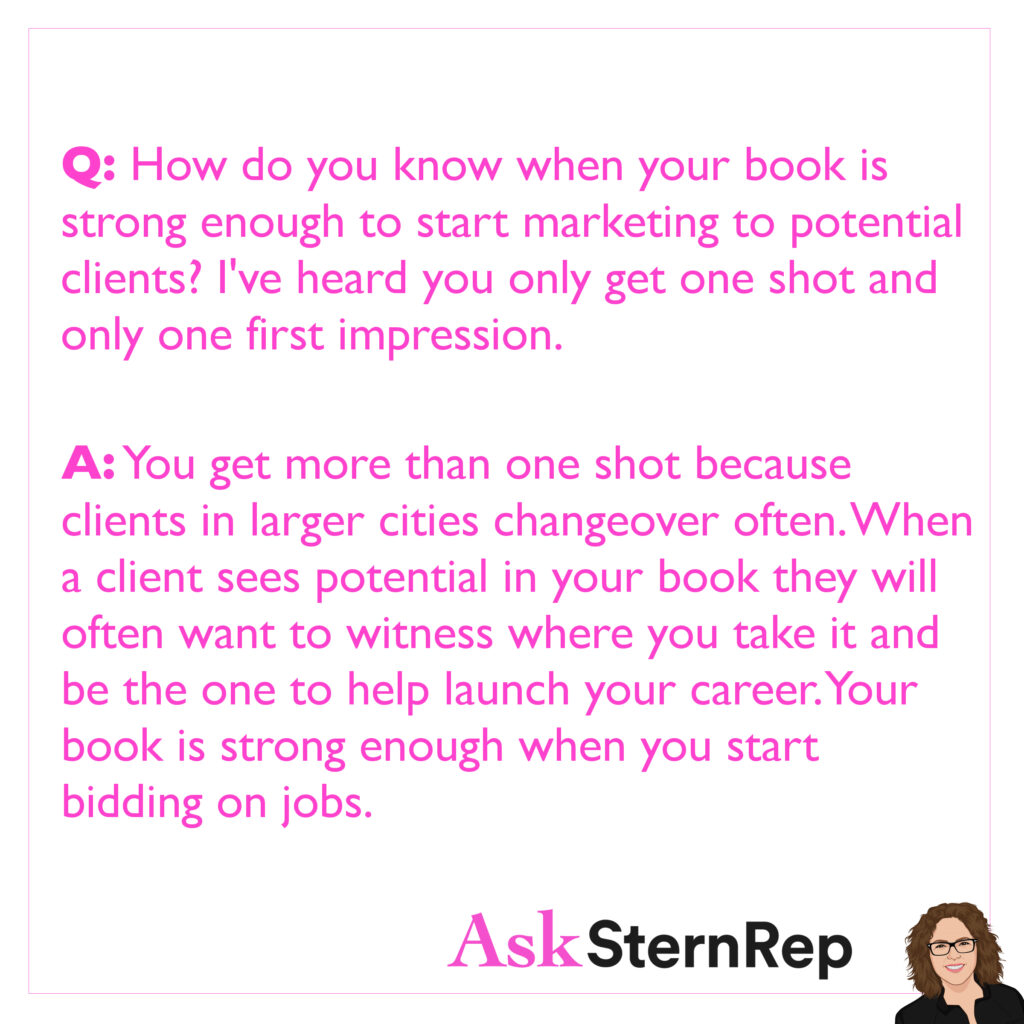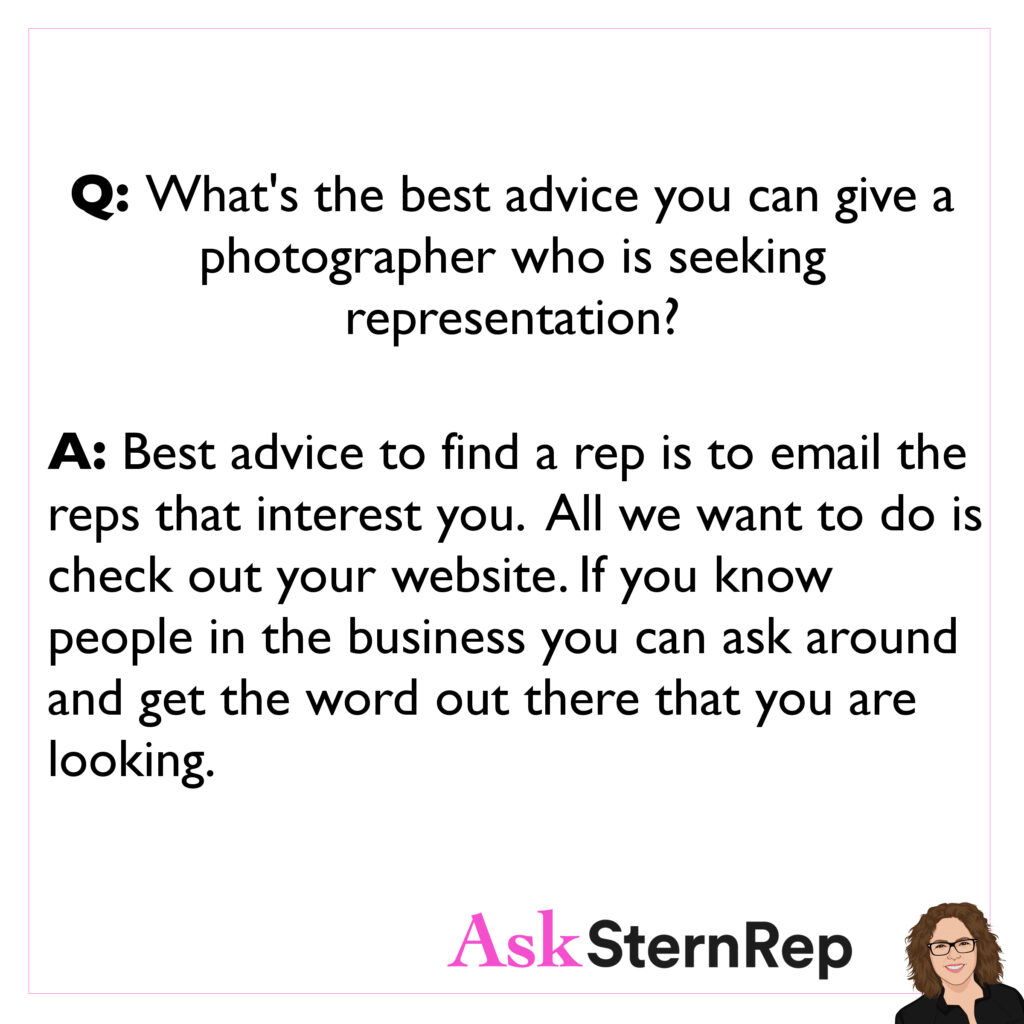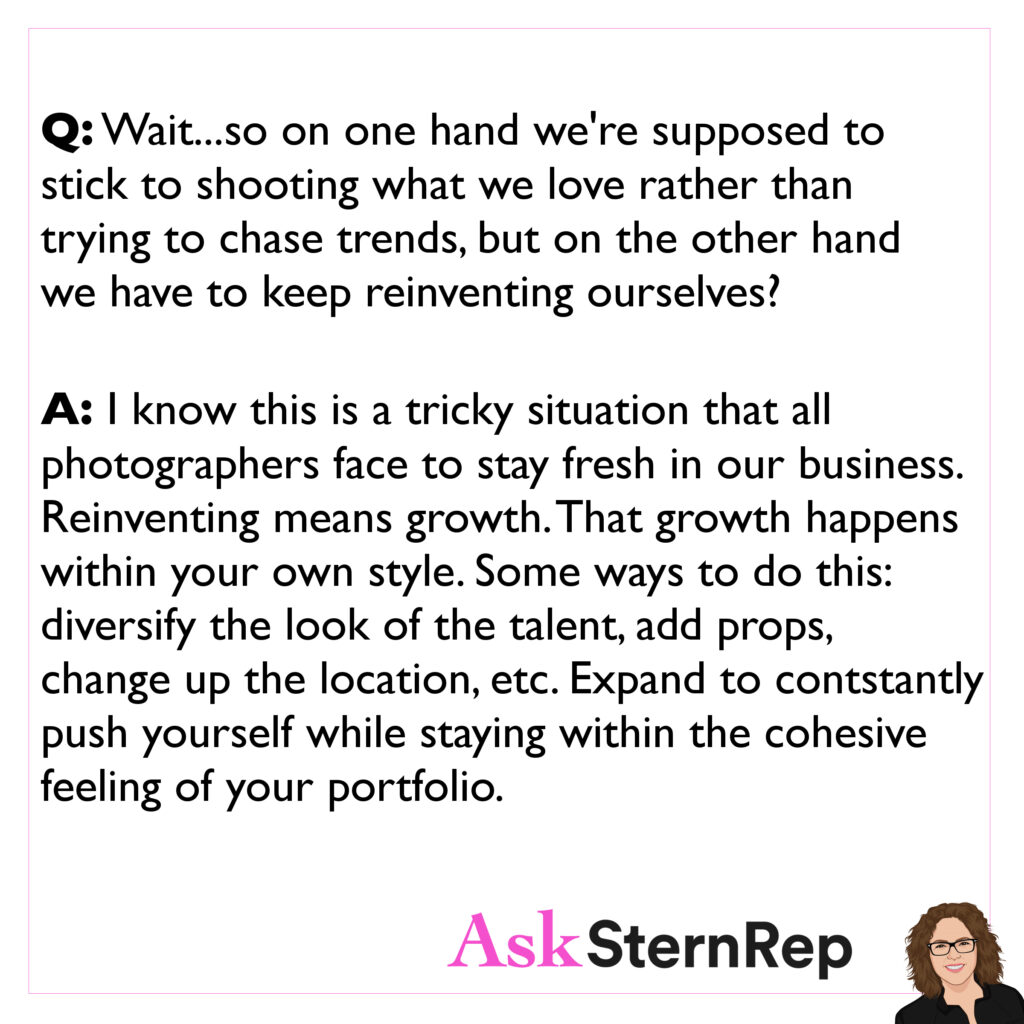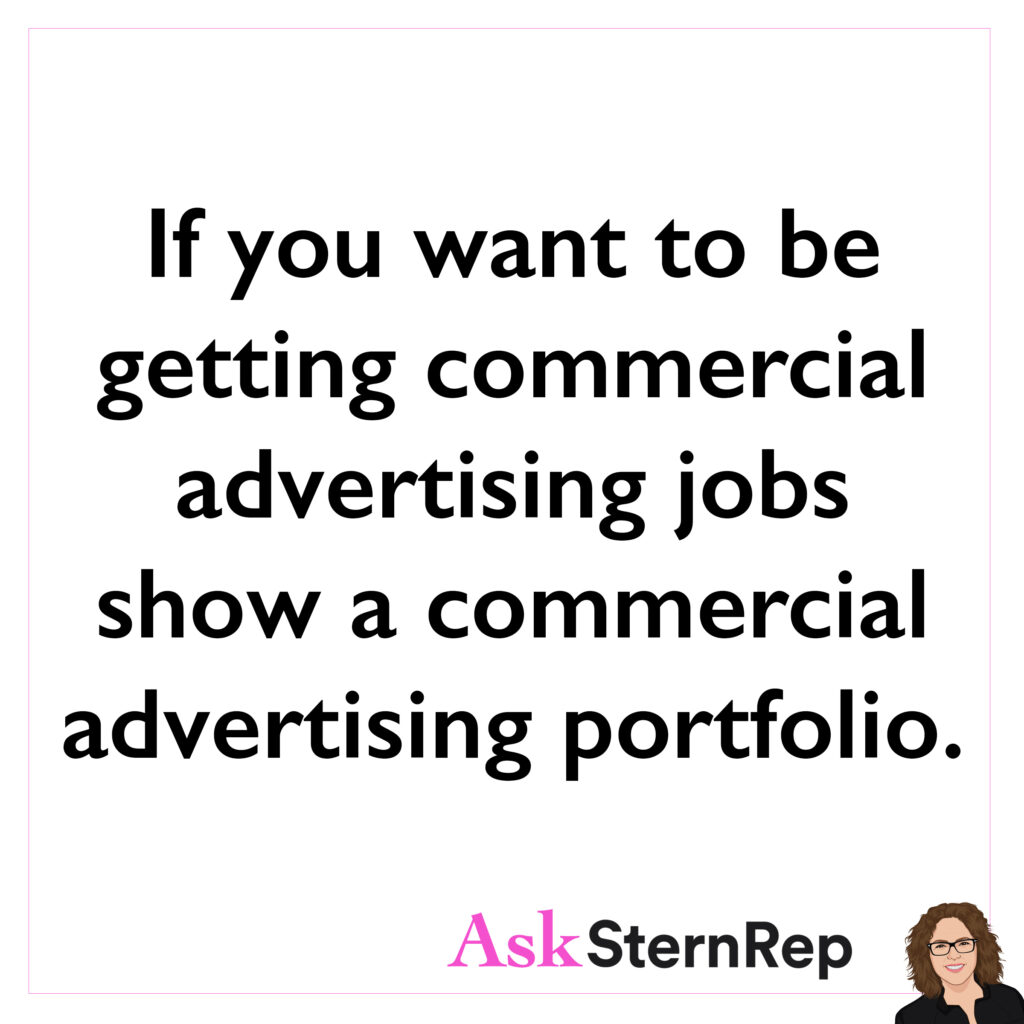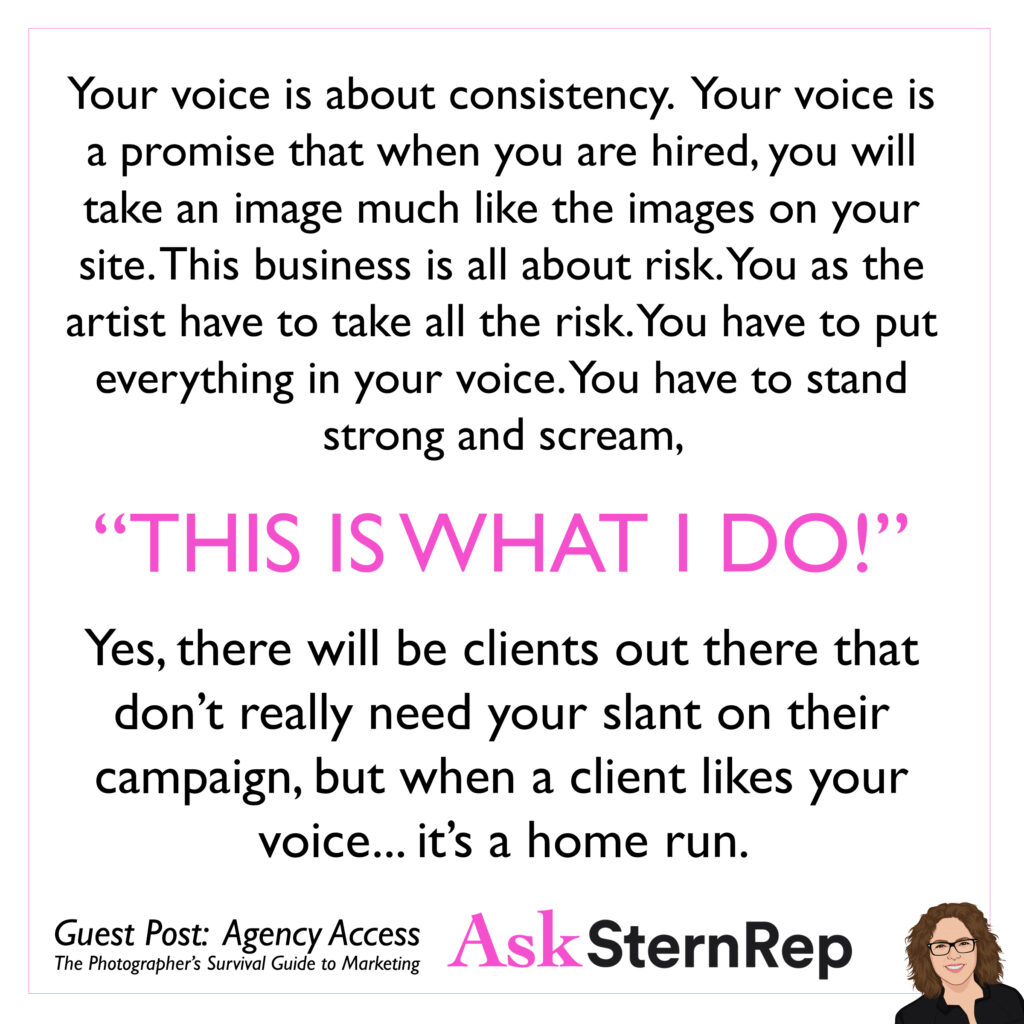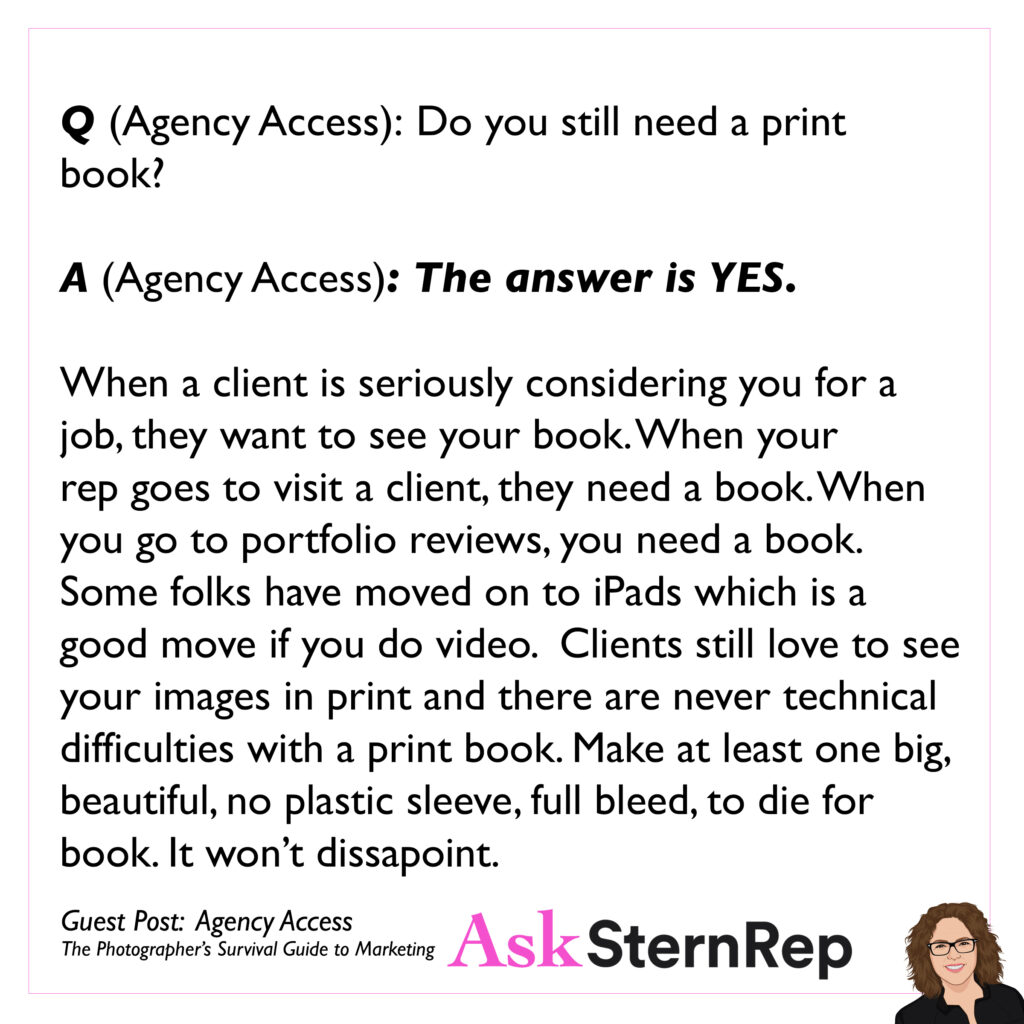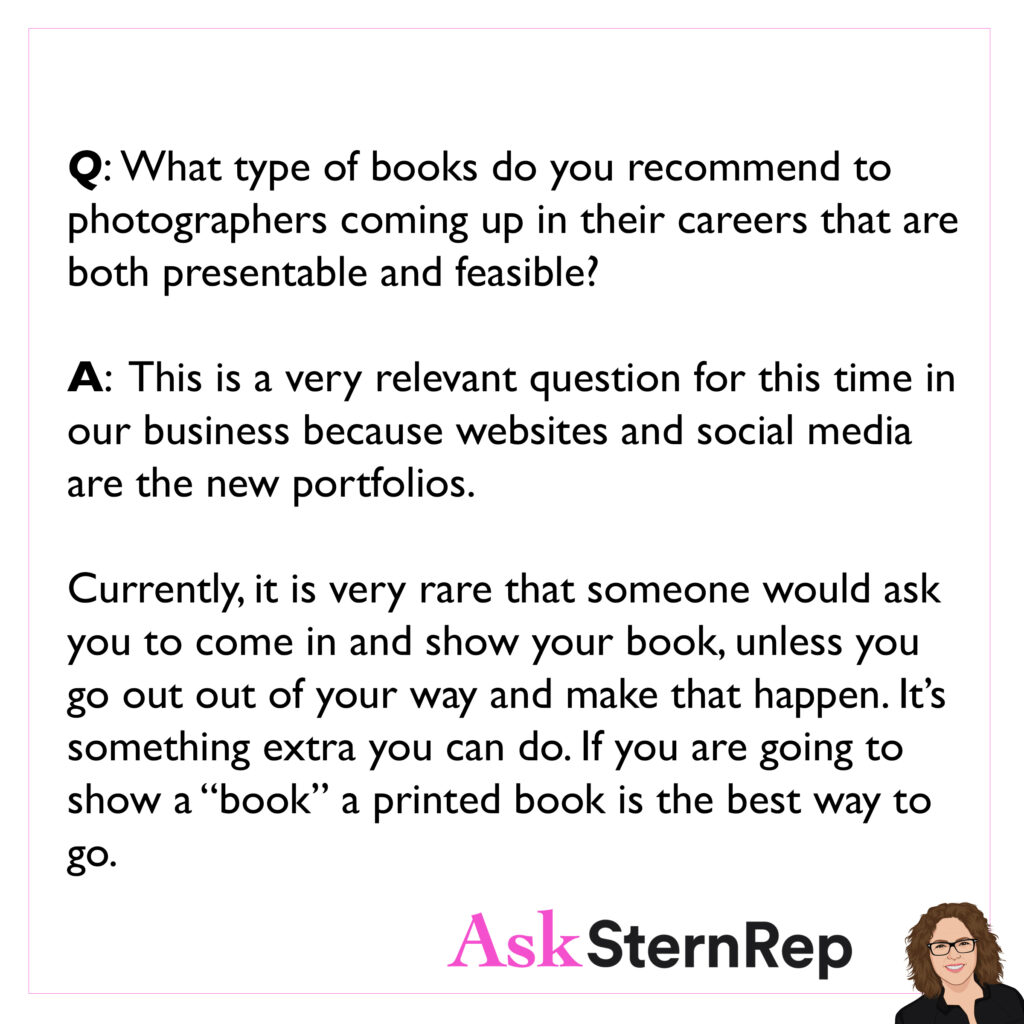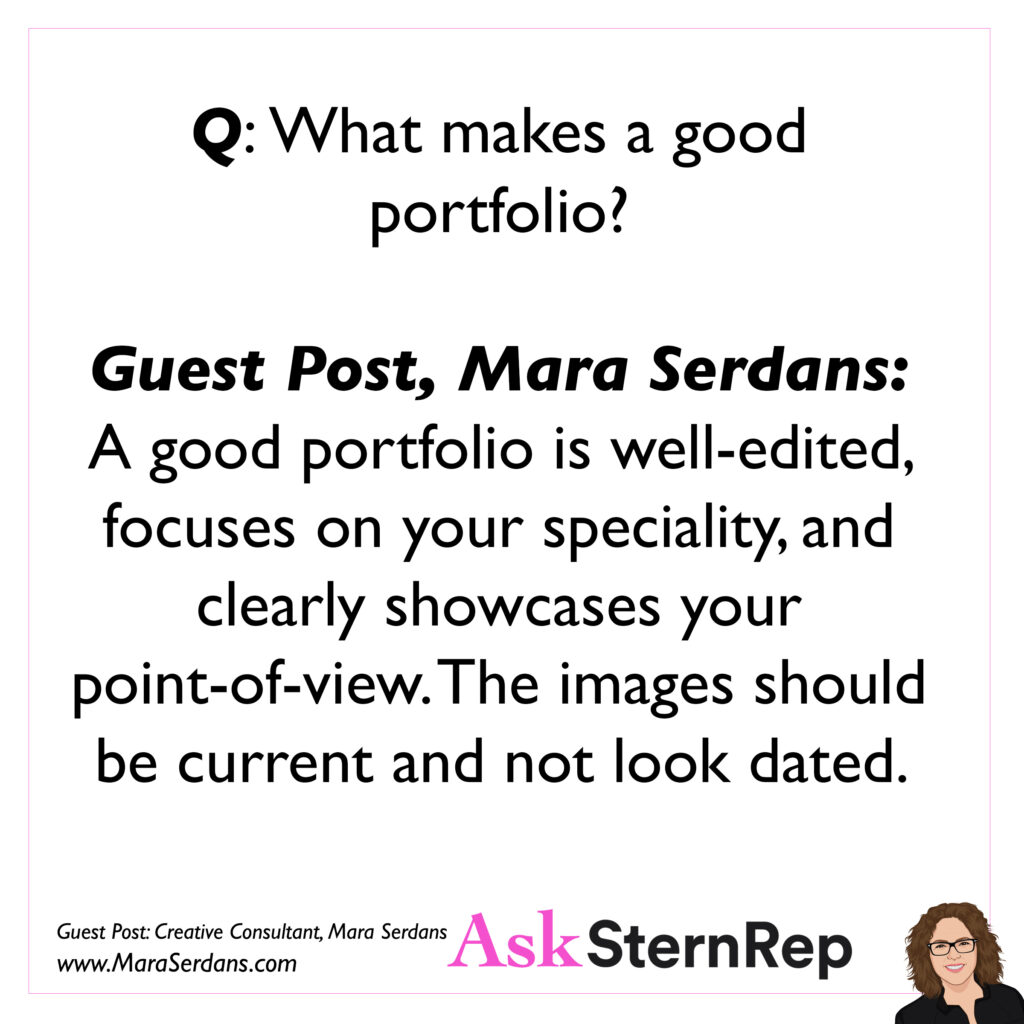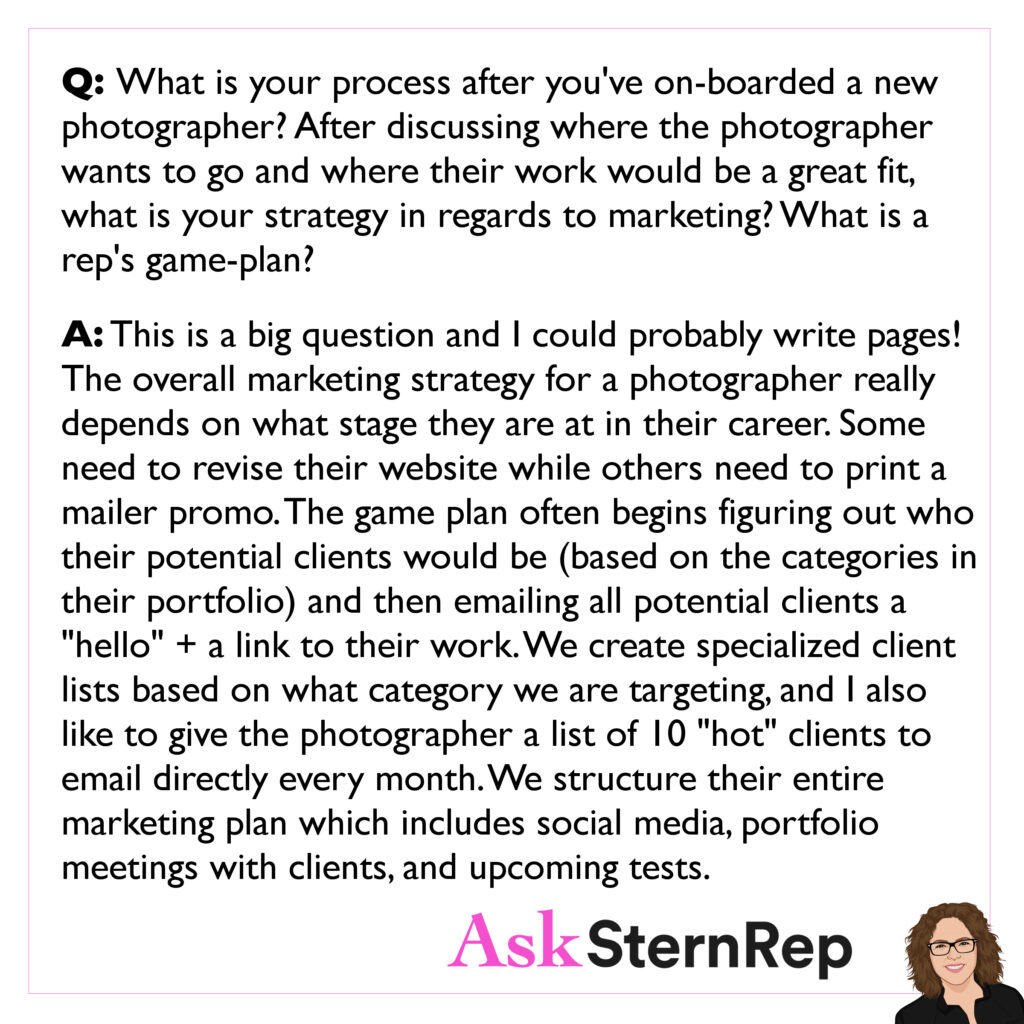
Q:
What is your process after you’ve on-boarded a new photographer? After discussing where the photographer wants to go and where their work would be a great fit, what is your strategy in regards to marketing? What is a rep’s game-plan?
A:
This is a big question and I could probably write pages! The overall marketing strategy for a photographer really depends on what stage they are at in their career. Some need to revise their website while others need to print a mailer promo. The game plan often begins by figuring out who their potential clients would be (based on the categories in their portfolio) and then emailing all potential clients a “hello” + a link to their work. We create specialized client lists based on what category we are targeting, and I also like to give the photographer a list of 10 “hot” clients to email directly every month. We structure their entire marketing plan which includes social media, portfolio meetings with clients, and upcoming tests.

